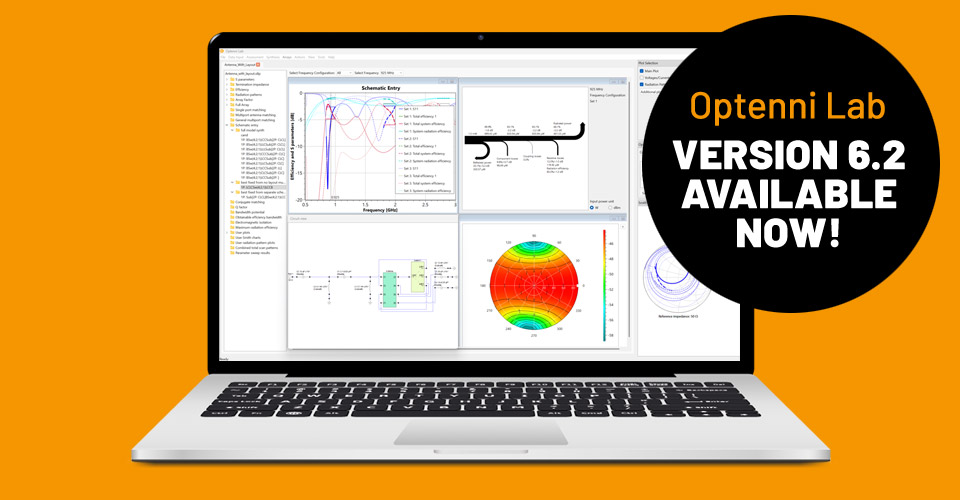Accelerate your design flow using matching circuit synthesis and optimization
Optenni Lab’s automatic matching circuit synthesis provides the user with multiple optimized topologies using fast parallelized multicore optimization techniques. The synthesis applies to both single-port and multiport RF systems, and schematics with arbitrary connectivity. The synthesis uses accurate component models from major passive component vendors and can also be used in conjunction with tunable components.
-
MATCHING CIRCUIT SYNTHESIS
Optenni Lab’s advanced synthesis methods speed up the RF design flow, as multiple optimized circuit topologies are generated and optimized.
-
OPTIMIZATION
One of the key benefits of Optenni Lab is the intuitive but versatile setup of various optimization goals related to antenna efficiency and power transfer. Optenni Lab uses state-of-the-art optimization methods which are tailored to circuit design problems.
-
SCHEMATIC ENTRY
Optenni Lab has a unique schematic entry environment which includes built-in circuit synthesis capabilities and understands antenna quantities through a special antenna object.
-
MULTI-ANTENNA MATCHING
Optenni Lab supports multi-antenna matching for best efficiency, taking antenna-to-antenna coupling into account. The optimization setup enables control of both efficiency and isolation.
-
TUNABLE ANTENNA DESIGN
Optenni Lab is widely applied in the optimization of tunable antennas, which typically are either frequency tunable antennas using aperture tuners or use closed loop tuners which adapt to various user environments. Optenni Lab supports switches, variable capacitor banks and more complex tuner chips as the tunable elements.
-
COMPONENT LIBRARY
Optenni Lab includes an easy-to-use component library of commonly used inductors and capacitors that supports automatic matching circuit generation and sensitivity analysis. Currently more than 100 component series from 6 major manufacturers (AVX, Coilcraft, Johanson, Murata, Taiyo Yuden and TDK) are included in the library.
-
PCB LAYOUT
In matching circuit design, it is essential to include the effects of the matching circuit layout in the optimization process. In Optenni Lab this can be done using transmission line segments or EM-simulated layout blocks.
-
DATA CONFIGURATIONS
One of the unique characteristics of Optenni Lab is that we can take multiple data configurations into account when optimizing matching circuits. With Optenni Lab, matching circuits which are robust with respect to changing impedance environments can be easily optimized.


